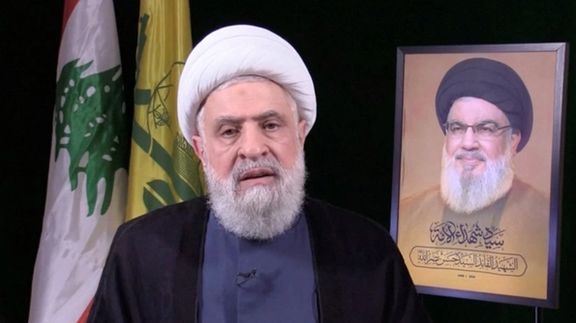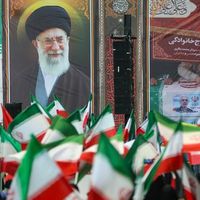"Iran supports our project and doesn't ask anything of us," Qassem said on Wednesday. "We don't fight on behalf of anyone or for anyone's project; we fight for Lebanon," he added.
The new Hezbollah leader also pledged that the group would continue its path of war with Israel, following the agenda set by his predecessor Hassan Nasrallah who was killed in an Israeli airstrike on the Lebanese capital in September.
"We will continue our war plan within the outlined political frameworks; we will remain on the path of war," he said.
Qassem, who had served as Hezbollah’s deputy leader since 1991, was elected by the group’s Shura Council. At 71, he is regarded as a foundational figure within Hezbollah.
Iranian leaders publicly extended their congratulations to Qassem on his appointment. Iranian President Masoud Pezeshkian commended his “defense of Lebanon’s sovereignty and ideals of the resistance front,” while Iranian Parliament Speaker Mohammad Baqer Ghalibaf praised Qassem’s enduring commitment to Hezbollah’s mission in Lebanon and across the region.
Meanwhile, Israeli Defense Minister Yoav Gallant alluded to Qassem’s potential vulnerability, posting on X shortly after the appointment, “Temporary appointment. Not for long.” He added in Hebrew, “The countdown has begun.”
Iran's Islamic Revolutionary Guard Corps founded Hezbollah in 1982 and has provided substantial arms and financial backing over the decades.
Although the scale of Iranian support has varied over the years, US officials estimated in 2018 that Iran channels approximately $700 million annually to Hezbollah.
Unconfirmed reports suggest that on October 5 Qassem was flown from Beirut to Tehran aboard an aircraft belonging to Iranian Foreign Minister Abbas Araghchi. While Iranian officials have yet to confirm these reports, Qassem’s potential relocation to Iran would imply that Hezbollah's leadership in Lebanon is now managed remotely.








